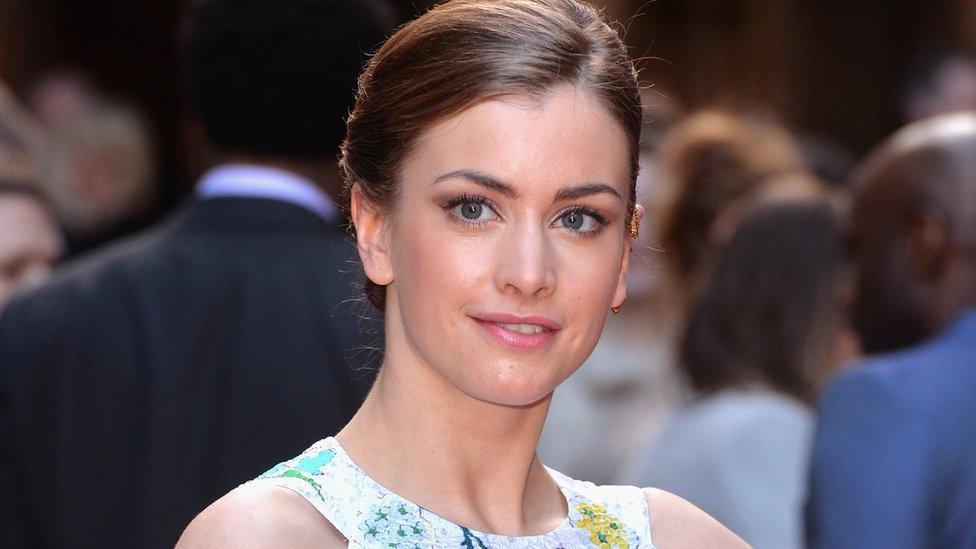Stepping into Mirren's shoes in Prime Suspect 1973
- Published
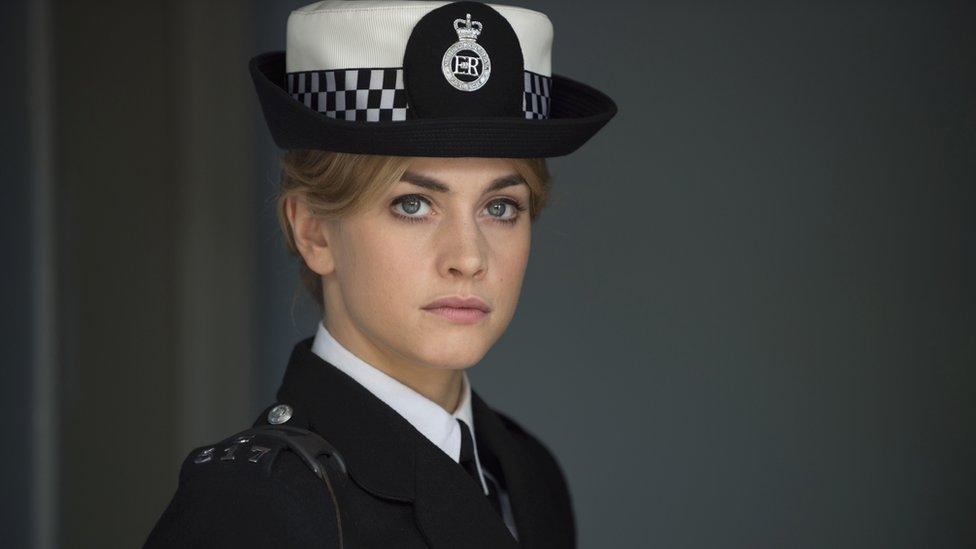
Martini graduated from Rada in 2015
Actress Stefanie Martini has been kept pretty busy since graduating from Rada in 2015.
Best known for her role as Mary in Julian Fellowes' ITV adaptation of Anthony Trollope's Doctor Thorne, she also appears in US drama Emerald City.
Now she's playing the leading role as a young Jane Tennison in the prequel to popular crime drama Prime Suspect.
The role of Tennison was, of course, originally played by Oscar winner Dame Helen Mirren.
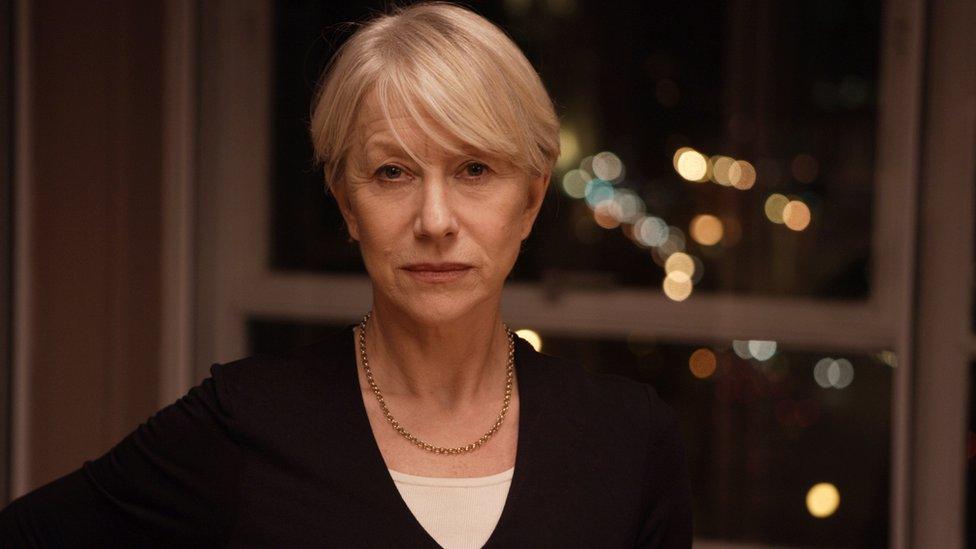
The original Prime Suspect ran from 1991 to 2006
We spoke to Stefanie about the pressure of taking on such a well-known role, sexism in the industry and dealing with the insecurity of the acting profession.
So, how are you feeling now the series is about to go on air?
I'm very excited for people to see it. And a little bit nervous of the response. I really hope that people like it.
How did you prepare for the role?
I had seen all the series before and then re-watched five series before starting the job. It was helpful in lots of different ways. Obviously having Helen Mirren's performance to reference and work towards and also to get a glimpse into the world that she's in. The police force, the chaos - especially how the rest of your life goes on hold.
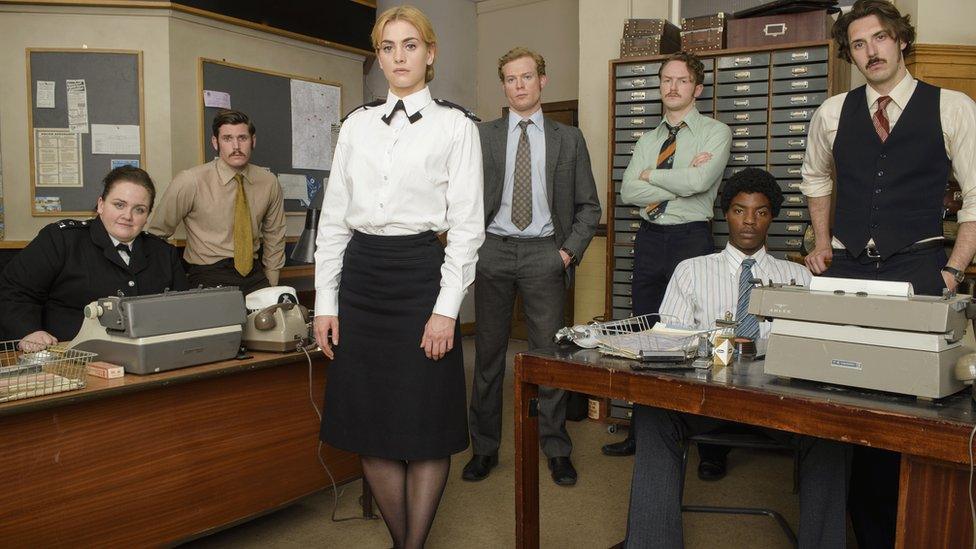
Working in a man's world in a 1970s police force
It's set in the 1970s, what was the sexism like in the police force then?
It was just so everyday, so casual, just so ingrained in the way people lived their lives. The expectation that women would perform more domestic duties than men and were generally considered less intelligent or important. That fed through to the way the male officers acted towards the female officers. I found it shocking how the female officers just expected it and were used to it, that's just the way things work.
Have you ever experienced sexism in your work?
Yes, I have, I think in the nature of parts - women are often portrayed as decoration, as sex objects, purely to bring in a certain kind of crowd with no three-dimensional personality. Luckily I don't get put forward for those parts very often but they are out there. Less and less but they are there.
There is such a pressure on female actresses to look a certain way, to be a certain shape and a certain size in order to get work. There are people that don't fit that mould who are incredibly talented, who don't get seen or given the opportunity to work as much as they could, simply because of the way they look. I think that's sad.
You'd like to think talent triumphs but it's not always the case if you can't even get through the door.
What's it like stepping into Dame Helen's shoes?
I tried to see it as a separate series in its own right even though obviously it's not - it was great to work off but she's so different as a character at that time of her life, so I couldn't copy what she would have been doing. It didn't feel like stepping into someone's shoes as the character is so different.
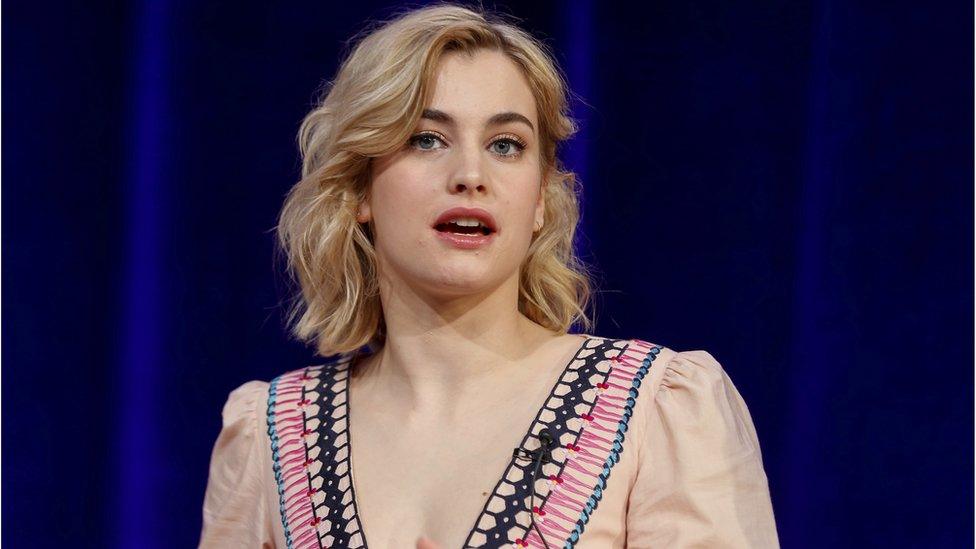
Martini says she has worked hard to be where she is but luck plays a part
Did you speak to Dame Helen about the role?
I love it when people ask me that - like I've got her phone number! She's supportive of the project I think, and I haven't spoken to her but if I met her in the future, I'd probably be a bit speechless and wouldn't know what to say!
You've been working pretty much non-stop since graduating from Rada in 2015.
What's happened for me is quite unusual. I'm very grateful and obviously I've put a lot of work in to being where I am but then at the same time, so much of it is luck, what projects are going and what you're right for.
And I've got such a great team of people behind me. They make everything possible and they believe in me.
It's a difficult career to be in and I'm very lucky to be in a very small percentage of people who have worked quite a lot over the last year. Acting goes up and down in waves.
Obviously because of what's going on with me right now, at some point in my life I'm not going to be in that situation and someone else will and that's the nature of the job. You've just got to enjoy the work while you have it. But also never get too secure or expect that's the way things are going to be.
What is it like making the transition to television?
It was a learning curve. There is a screen department at Rada and they teach you what they can, but I don't think anyone can prepare you for the scale of it. It's so different to theatre, in the way that you don't have four weeks of rehearsal. You have to make all the choices beforehand and be flexible.
You don't know what the final thing's going to look like, you don't have the experience of the live audience and being able to feel their feedback in the room with them. It's doing it and then six months or a year later, it's become something and you've no idea what it's going to be.
Prime Suspect 1973 is on ITV on Thursday 2 March at 9pm.
- Published18 July 2016
